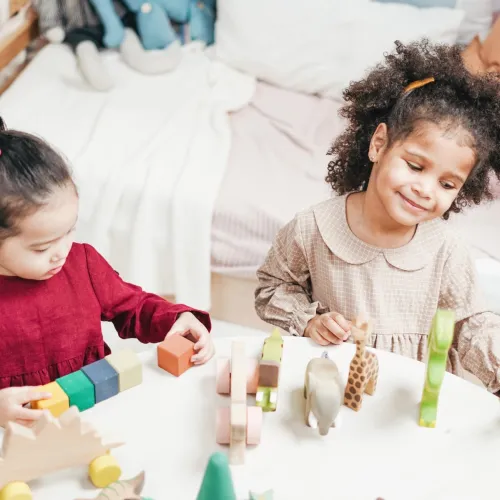What Is Co-Parenting?

Many aspects of parenting remain the same after a separation. Keeping communication between parents positive, however, will often require greater attention and care. The emotional turmoil of divorce can make children especially vulnerable. If conflict is a major aspect of co-parenting communication, children’s lives can be further destabilized. Although separation will change how families work, co-parents can still be a source of stability and comfort for their children as long as they commit to positivity in their shared parenting.
So what is co-parenting? If you’ve recently separated, you may be wondering where you should focus your energy to keep your family’s communication positive and productive. Deciding where to start can be an overwhelming process and sometimes stall parents new to the co-parenting world. To help you hit the ground running, here are a few areas that will require your diligence to spark confident co-parenting.
Have A Plan + Stick To It
Developing a comprehensive parenting plan will be worth the work you put into it. Take the time to establish boundaries, best practices, and expectations with your co-parent. Doing so will take much of the guesswork out of your co-parenting. Defining exchange procedures, deciding how to handle requests for parenting time modifications, or solidifying what methods of communication you will use are all examples of what a detailed parenting plan should include. If you’re unfamiliar with how to develop a parenting plan, read this article to better acquaint yourself with the topic.
Consistency helps more than just communication between parents. Consistency will also help children adjust to living in two households. If kids have expectations that are reliably met, like being picked up at the same time every day after school or having both parents attend their sports games, they can become confident in their new family structure. Sticking to your parenting plan ensures that your children don't have to readjust their expectations with every last-minute change.
Remain Flexible
Mishaps happen in every household. Co-parents are occasionally going to encounter frustrating mix-ups stemming from miscommunication. As long as those mix-ups do not define your co-parenting in general, being flexible about the odd mistake will be essential.
Parents will need to ask favours of each other. Schedules change, appointments are forgotten, and sometimes communication breaks down. Do not let these mistakes become opportunities for your own communication to slide. Instead, be proactive in getting back on track. These communication rifts are undoubtedly frustrating for adults. But if parents allow those rifts widen, children are the ones who end up suffering the consequences. Find a way to move past your moments of frustration peacefully while taking measures to ensure that you don’t keep running into the same mishaps in the future.
Respect Is Non-Negotiable
The romantic relationship may have ended, but children still bind parents to each other. Co-parents do not have to be friends, but respect is essential for the health of any family. Maintaining a base-level of civility in your communication should be non-negotiable. That civility will be crucial for keeping communication productive.
You may find that the same methods of communication you used before your divorce do not adequately combat conflict in your co-parenting relationship. If phone calls and text messages no longer work for you, don’t be disappointed. Co-parenting creates a unique set of stresses and more typical methods of communication can sometimes aggravate conflict rather than resolve it. If you end up using a specialized communication platform like OurFamilyWizard, that doesn’t mean you and your co-parent have “failed” at the more typical methods of communication. You are simply taking the necessary steps to better ensure your co-parenting communication remains clear and respectful.
Put Your Kids First
Putting your children’s needs before anything else may seem like an obvious aspect of co-parenting, but making your own emotions take a back seat is often easier said than done. Working as a team to raise happy and healthy children can only be accomplished when co-parents are sincere in their intentions and conscious of their motivations. Otherwise, being overwhelmed by frustrations and old resentments can put some serious dents in your co-parenting efforts.
Be honest about your own feelings, but remain aware that your relationship with your co-parent need not define your child’s relationship with their other parent. Unless there are serious health or safety concerns at play, every co-parent should do their best to fortify their child’s relationship with their other parent. “Too much of a good thing” doesn’t apply to having a parent’s love and support when you’re a kid.
So what is co-parenting? At its most basic, it’s putting the needs and well-being of your children before everything. It’s working honestly and openly with your co-parent to meet those needs and raise happy and healthy children. This means giving children the stability they deserve while realizing that life isn’t perfect. It will require cooperation and flexibility from all parties involved. Co-parenting is chasing the desire to raise children who can look back with a fondness and appreciation for the effort their parents expended for their benefit. We at OurFamilyWizard are humbled and honoured to help families do just that.



